This Woman Always Thought She Was British. Now, After 30 Years, The Home Office Says She’s Not.

Cynsha Best never had a reason to think she was anything other than British.
The 31-year-old was born in Hammersmith and has lived in London all her life. Her grandparents are British; her dad is British; all four of her siblings are British; and her two sons are British.
But earlier this year, she was summoned to the Home Office and detained for seven hours. They told her that not only was she not a British citizen, but that she had no right to stay in the country and she should leave.
“It was news to me because all I’ve known is England,” she told BuzzFeed News, in an accent more London than the cast of Eastenders. “I keep thinking I’m going to wake up and it’s going to be a dream, but it really isn’t. They’re saying I slipped through the net.”
Since discovering her nationality was not what she thought, all her benefits have been stopped and she is relying on the charity of family. She is two months behind on her rent and worried that she will soon lose the small council flat she shares with her young sons.
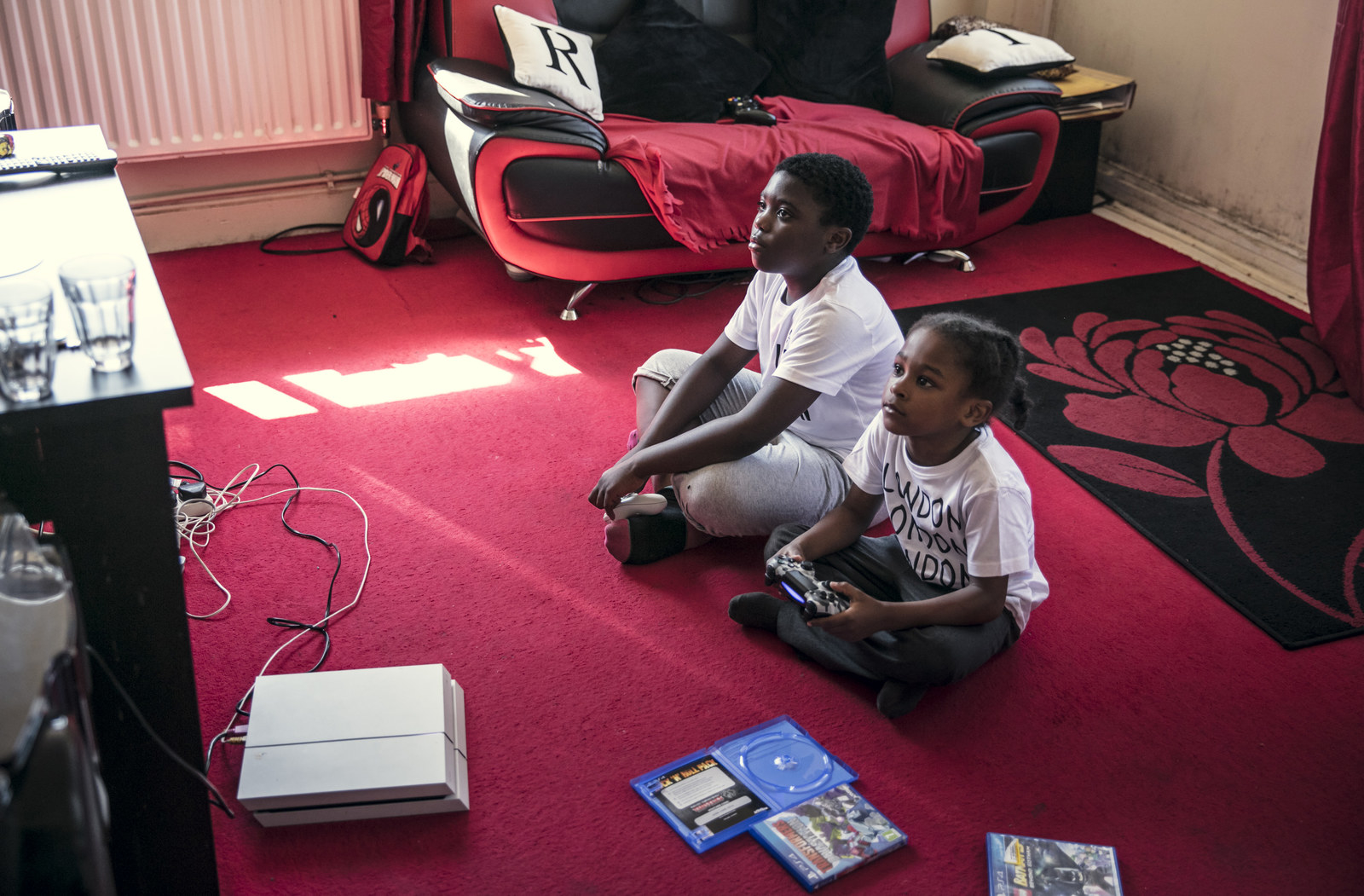
Will Bremridge for BuzzFeed News
Her case is a rare one that reveals Home Office ineptitude that dates back over more than half a century.
It shows the way that blameless citizens, especially those whose cases date back to before the system was computerised, are not on the Home Office’s radar. They often discover by chance – for example, by going on holiday or getting married – that their immigration status is not what they had thought it was. And as a result, their lives are turned upside down by a government that has set out to create a “hostile environment” for immigrants.
The Home Office has more complaints upheld against it than any other government department, according to a report by the Parliamentary and Health Service Ombudsman published last December. Three-quarters of all complaints to the ombudsman about the department were upheld in 2015–16 and most have been related to immigration failings. The rate has increased steadily over the last three years and is far ahead of other departments. The Department for Work and Pensions had 36% of complaints upheld, while HM Revenue and Customs had just 10%.
Best’s family cannot understand why she is being made to go through immigration procedures given their long history in the country.
Her grandparents first moved to the UK from Barbados in 1956. At the time Barbados was still a colony of the UK, which meant they were considered British citizens. Best’s mother Cynthia was the last of the children to join them when she arrived as a 12-year-old girl in 1968 on her father’s passport.
Thousands of British families have a similar history. Between 1955 and 1966, more than 27,000 Barbadians migrated to the UK under a resettlement scheme. Their descendants are now fourth- and fifth-generation British citizens.
Best assumed her story was the same.
But after applying to register a marriage to her Barbadian boyfriend Andre, she was referred to the Home Office.
“I got a letter in the post asking me to come to the Home Office in Croydon to make sure it wasn’t a sham marriage. We thought it was an interview for that, and I ended up being detained for seven hours.
“I wish we’d never gone now. I was more worried about him than myself, and then it all turned on me. He was fine because he was still within his six months [visitor visa] and his time hadn’t run out yet. I was all worried about him going there, and then it all just flipped on me. They were like, ‘You’re the one who’s got no status.’
“Straight away they asked me my name and then my nationality and I said, ‘British’. She said, ‘No you’re not,’ and I said, ‘Yes I am,’ and she said, ‘No you’re not, you’re Barbadian.’"
Flummoxed, Best said, “But I’m British – I was born here.” The response was unequivocal. She was told that “it doesn’t matter, you can be born here but not be British”. Best recalls: “They were arguing with me to the point where they had me crying and I had to just say, ‘Well I’m Barbadian then.’”
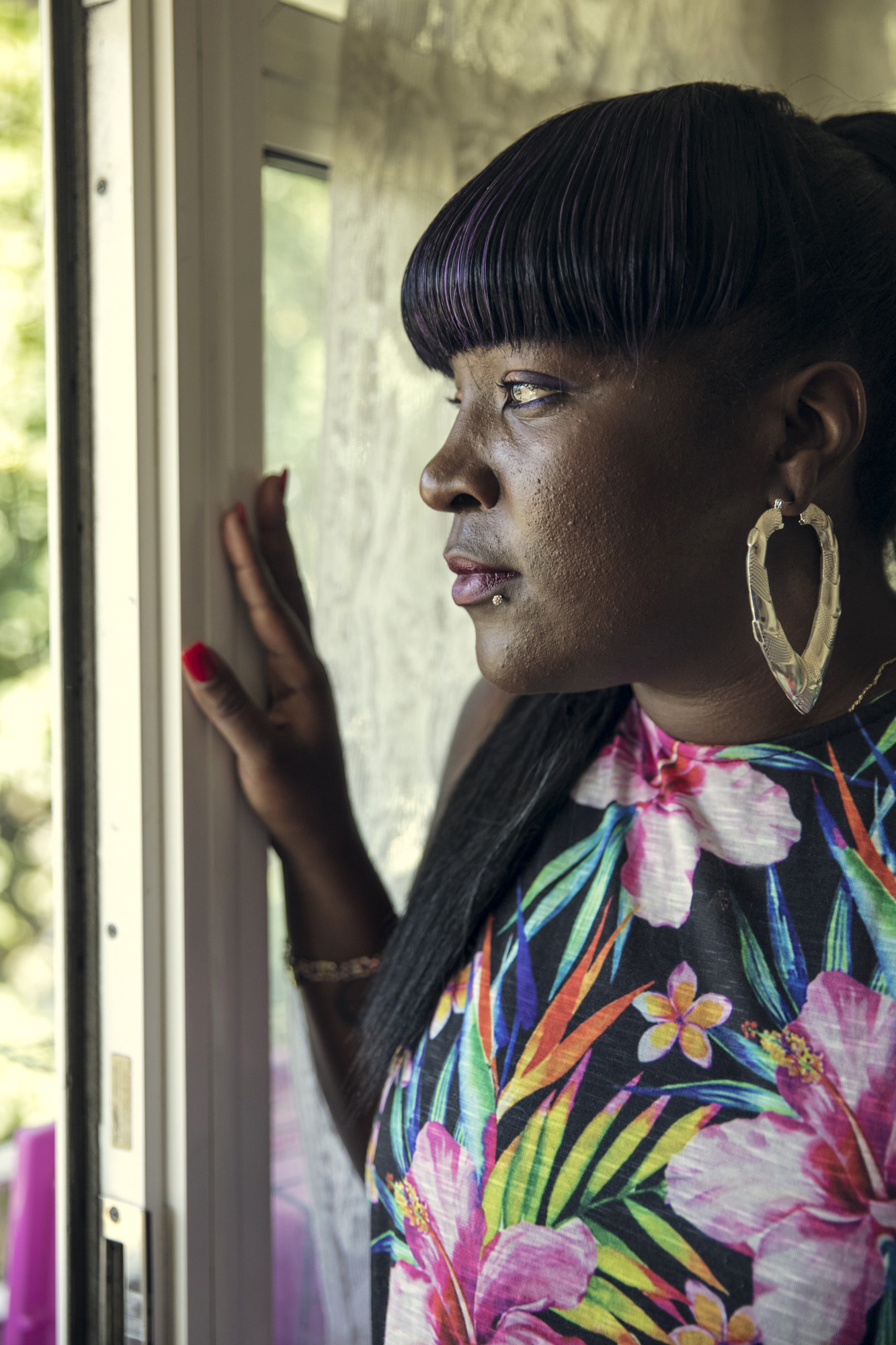
Will Bremridge for BuzzFeed News
That’s when the real problems started.
Best is the youngest of five children. All her siblings are British because they were born before 1983 – when the law changed to say that even if you are born in the UK, you are not automatically British if your parents are not British at the time of your birth.
Though Best’s mother has lived most of her life in the UK and has leave to remain, she is Barbadian. Best’s father is now British but was Guyanese at the time of her birth.
But with so many generations of her family settled in the UK, Best says she never realised this meant she wasn’t British. Suddenly, in the space of a few minutes of questions in a bland cubicle in Croydon’s Home Office building, she had gone from proud British citizen to illegal immigrant.
“They gave me so much information all at once, so it was hard for me to process it,” Best said. “If I knew I was an illegal immigrant I wouldn’t have gone there. I’ve been in this country for 31 years. Every time I filled in a form, I’ve just put 'British' all my life. Always. I never, ever knew. I was given a National Insurance number when I was 16.”
She was put into what she describes as a secure holding suite. “There were other people in there and we were locked in and couldn’t go nowhere. They had all of our stuff. They wouldn’t even let me make a phone call to arrange for me to get my kids picked up from school or anything.”
The original appointment was at 9am, but they were held there for hours on end. “Every time I went to the toilet someone followed me; I was like a prisoner,” she recalled.
“The ladies who interviewed me said they had to pass it to the chief immigration officer. The chief immigration officer was ready to [send me to Barbados]. It was so emotional. I was meant to be going about the marriage and they just sprung all of this at me. I was so tearful I couldn’t even speak.”
As the day wore on, school pickup time came and went, and she was terrified that her sons, Rio, 9, and Thierry, 5, would have nobody to collect them. She begged to be released for their safety and was finally allowed to leave.
“By that time I was so distraught. I think they let me out at quarter past, maybe half past 3. My kids had already finished school, but luckily a friend who lives on the estate was just getting ready to leave the school so I just quickly called and asked her to grab my kids. But I would definitely have not made it there in time had I had to go there on my own. And I was just so distressed that day, it was just awful.”
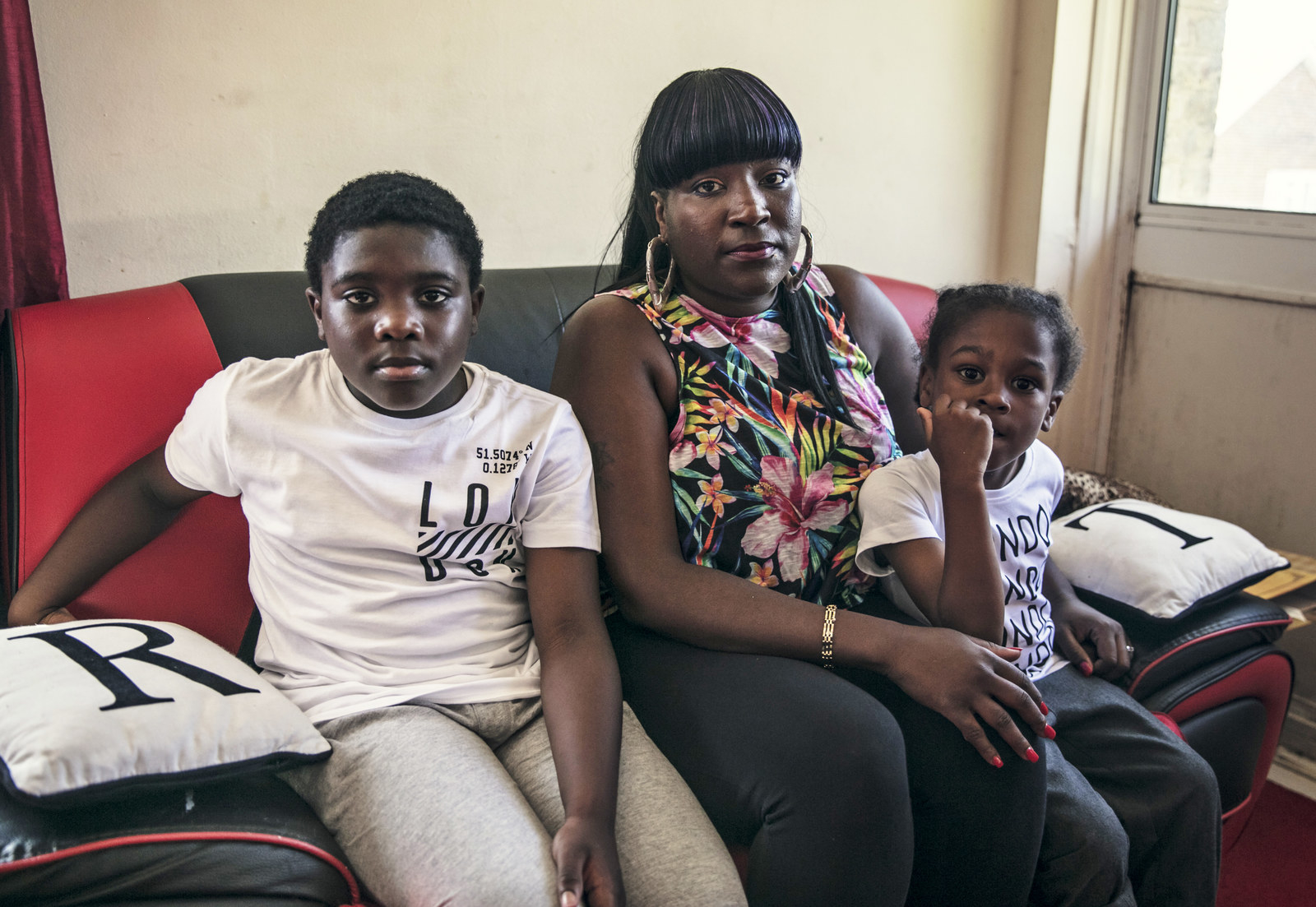
Will Bremridge for BuzzFeed News
The Home Office does not make official comments on individual cases, but when pushed a spokesperson said “crossed wires” led to the false belief Best wanted to participate in a voluntary return to Barbados. The Home Office says it wants to help her find a route to settlement – but Best says this has not been experience. She says she has been left to navigate the web of bureaucracy and fees alone at a time when her benefits have been cut, and that she is being treated like an illegal immigrant.
At the time of the Home Office interview in February, Best was on Universal Credit, looking for work since her youngest child had started school. She spent most of her twenties working in school canteens in west London but had stopped to be a full-time stay-at-home mother while her boys were small.
As a single parent, things were already tough financially, but now she faces years of being blocked from public funds. “They just quickly broke it down to me and told me I’m not going to be entitled to anything. I can’t work without a working visa.
“I feel like the system has let me down, really, because how can I be doing that for 30 years and then it’s just going to come crashing down on me like that and then they start treating me like an immigrant? I just don’t understand it.”
Last month her Universal Credit was stopped and now she is two months in arrears with her rent. She fears she will lose her council flat altogether before this is sorted.
The Home Office advised her to get a lawyer, though with no legal aid to help her, she went for one brief consultation and initially decided to fill out the paperwork herself.
“I just found out at 30 years old that I’m not a British citizen. And then they’ve just been so harsh on me – they’ve told me I either need to apply for leave to remain or do voluntary departure and that’s it. I explained my situation and told them I don’t have the money. The Indefinite Leave to Remain is £2,993, and that’s without a solicitor.”
Panicking that she would be deported before she had time to solve her status, she set up a GoFundMe page to raise cash for the application fees, the family’s living costs, and a lawyer. A solicitor saw the post after her cousin shared it on Instagram and is now acting for her pro bono.
“They’re classing me as an illegal immigrant. What am I going to do? They’ve offered £2,000 each for the voluntary departure, but £6,000? That might help me for a month in Barbados, but after that what am I going to do?"They quite frankly don’t care.”
Shahista Akbar, the solicitor who has taken on Best’s case, told BuzzFeed News that her situation illustrates the Home Office’s ineptitude.
“These cases are very rare. It’s an eye-opener even for us," she said. “It gives a glimpse into the chaos at the Home Office ... She doesn’t exist to them, that’s the problem. Thirty years ago it was all on paper. There’s that much paper around the Home Office that there just wouldn’t be any information.”
Akbar added: “She’s managed to leave this country with no issues, which is good in a way, but it makes it harder. Because they’ve just stumbled across her and she doesn’t exist to anyone right now. What we’re having to do now is introduce her to the Home Office.
“She was under the impression that because she has a British birth certificate she thought that made her British. In some countries that’s true, but not here. She’s never needed a British passport because she had a Barbadian one and was able to travel freely on it.”
Akbar says cases like Best's are a prime example of when the government should use discretion. “The Home Office has such a hardline approach, and I think there should be some sort of leniency.
“There are a lot of things that could’ve been done a lot earlier but she didn’t know about them … They are just not helpful. There’s not a normal process you can go through. The most shocking thing is the fact that they’ve not forwarded her something. They should’ve given her something to say 'this is your status'.”
Last month things escalated further. Just after Best had dropped her sons off at school, two immigration enforcement vans pulled up outside the three-storey block of flats where she lives in east Croydon.
“I got a phone call from my neighbour the day after my birthday, on the 21st of June,” Best said. She was with a friend at a café up the road and had already seen the vans drive past. “I knew straight away when she called me because of the vans and I said, ‘What, immigration?’ and she said, ‘Yeah, they surrounded your whole block and were trying to look in the windows.’
“After I saw them leave, I quickly came to my house with my friend, the same one I was having breakfast with, and quickly packed some stuff because I was scared.” She took the boys out of school as she was frightened immigration enforcement officers would try and find her there, and went to stay with friends.
But after a week she decided to confront the problem. “You want to go home to your house, you know. And it wasn’t fair for the kids because they were off school as well because I was worried. On the Monday I thought, I’ve had enough by now. So I just went into the Home Office in Croydon to see if I could speak to somebody.”
When she arrived at the Home Office, she said she was given a surly reception. “They let me go upstairs and I saw someone on the first floor. I explained my situation and she was just so rude, she was like, ‘Go and see my colleague on desk 9.’ And then when I went to desk 9 – it was the voluntary departures – they were basically trying to get me to say that I’m going to leave without fighting this. I asked them, ‘Do you want to see the paperwork? Because I’m in the process of doing it, but it’s just that I haven’t got the funds.’ She said ‘I don’t want to see it, go to desk 9.’
“But when I went there it was actually a nice lady and I explained my story to her and she said, ‘Have you got a British birth certificate?’ and I said yeah, and I showed her my birth certificate and she went to speak to some immigration officers and then came back and said, ‘They know your situation, they know all your family are here, they know all your siblings are British and you’re the only one that’s not. But you need to put in a thing for indefinite leave to remain as soon as possible.'
“I asked her, ‘Why did they come to my house? Because I am in the process of doing it.’ She said they’re not going to give me any information, but she did manage to speak to them to give me a bit more time. But when I asked her how long, she said they can’t give me as to how long I’ve got.”
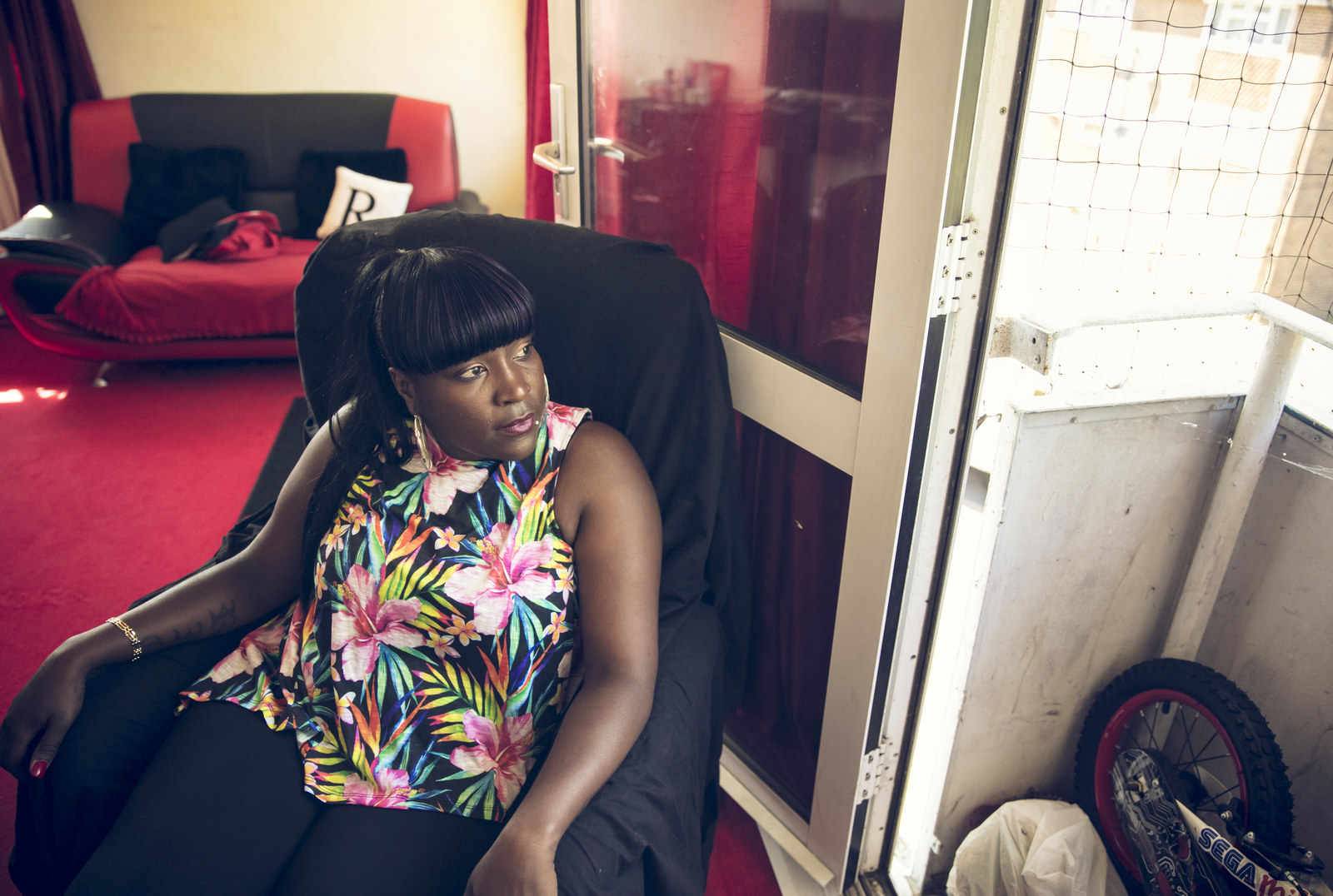
Will Bremridge for BuzzFeed News
The Home Office insists it has never sent immigration enforcement officers for Best, though it does not deny that enforcement teams visited her block that day. It is possible they were looking for someone else, though BuzzFeed News spoke to neighbours who witnessed officers knocking on her flat door and surrounding the building looking up at her windows.
BuzzFeed News understands from the Home Office that Best is not at risk of deportation, and that it wants to help her – but she is convinced otherwise.
She said: “My worst fear is being deported with my children to a country that I don’t really know anything about. I’ve only been there on holiday, but I don’t really know the lifestyle, I won’t have anywhere to stay.”
“It’s just unbelievable,” she said, her voice cracking with emotion. “Nobody believes me when I tell them my story. I think everyone’s just like, ‘Nah, it’s not true.’"
Her eldest son Rio has a rare life-threatening condition where his kidneys leak and he has to be tested daily. Without the NHS she says she could never afford the care he needs.
Best is still overwhelmed by her sudden change of circumstances, particularly the financial black hole it has left her in. But she has had little help from anyone in authority.
“I went to social services as well the other day, because I feel like I’ve not had much support throughout this whole thing, I’ve just been going round in circles and really struggling. I went to try and get an adult social worker and even they refused me – they said you have to be referred by your GP or the school. I explained the situation and that I need support for myself and the children as well, because once this goes through I’m not going to be entitled to literally anything.”
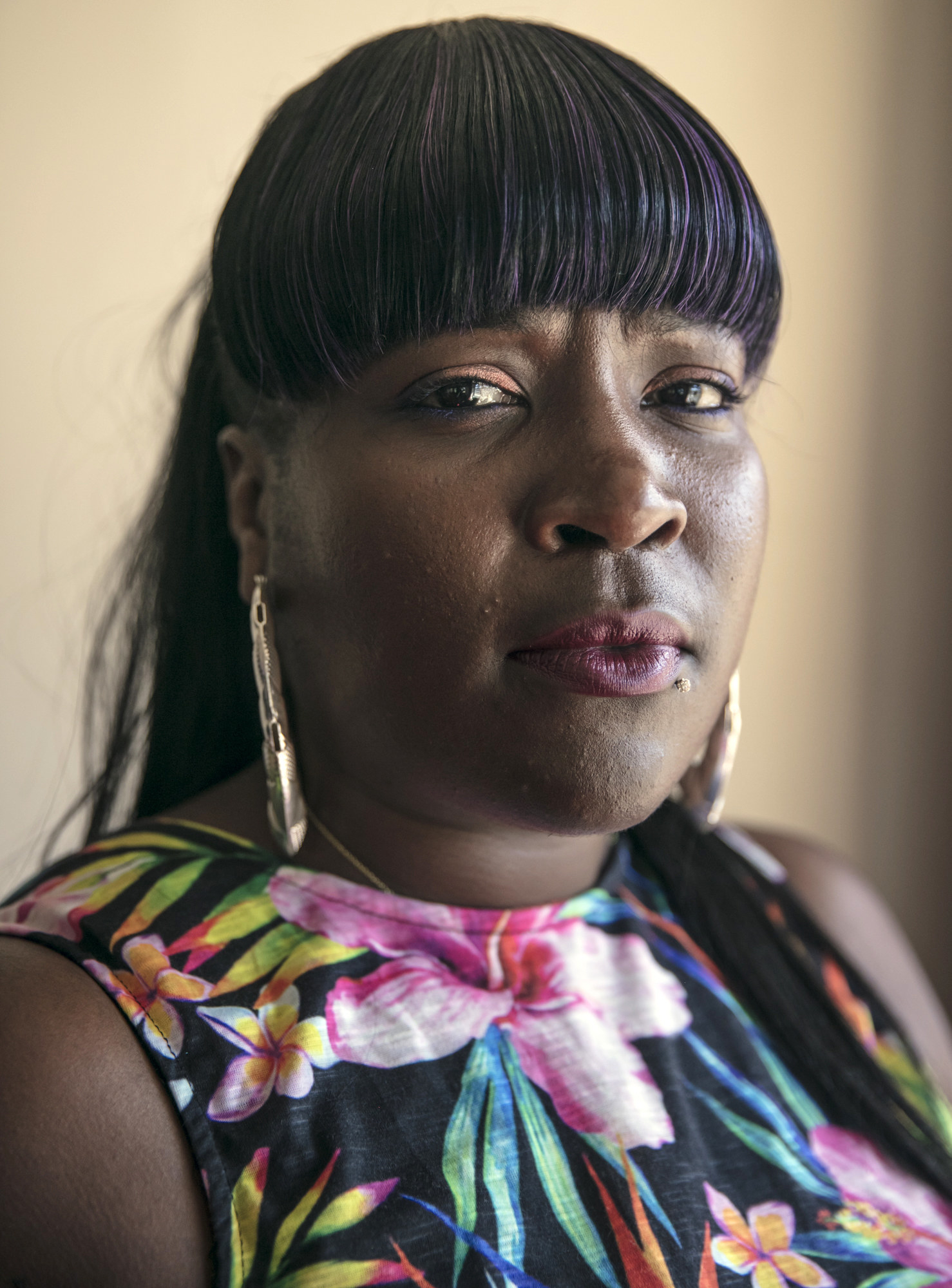
Will Bremridge for BuzzFeed News
Best has not been served with papers as an illegal overstayer – but the total lack of paperwork has not reassured her. In fact, the lack of a paper trail has made the whole thing more intimidating.
When BuzzFeed News interviewed her at her flat in Croydon, she on the phone to the Home Office to find out a reference number for her lawyer. The experience was beyond satire.
The call centre worker told Best: “The only way you can get the reference number is to actually write to your case worker." When Best replied that she had no case worker either and asked if she could search under her name, she was told a firm no.
Trying to be helpful, the call handler suggested: “Your Home Office reference number will be on any correspondence you’ve had from the Home Office.” But the advice is no good. “I haven’t had any,” Best replied, explaining that she has no status in Britain at all.
The call concluded with Best being told to fill out and post a subject access form in order to get the reference number needed to even start the process of legalising her residence in Britain. Even if that is accepted, it is likely to be several years before she has the legal status to be eligible for any state help.
Akbar, her lawyer, said: “They won’t give her British status, so she’ll have to start from the beginning, which is really bad because she’s been here all along. Realistically, had this process started several years ago she would be British by now.”
There had been some earlier clues that there might be something unusual about Best’s immigration status. She had always assumed that she had dual nationality, travelling to Barbados on family holidays on a Barbadian passport.
When she applied for a British passport last year to scatter her grandfather’s ashes in Barbados, she thought it would be simple. She was surprised to be turned down for the passport but heard nothing further and didn’t think more of it.
Best’s mother, Cynthia, 62, says she never thought about her immigration status – or her daughter’s. Like her daughter, all of Cynthia Best’s siblings are British and she never thought she needed to do anything to ensure that she or her daughter were.
Having lived in London since she was 12, Cynthia Best did not even leave the UK until the 1990s – and then it was on a Barbadian passport. She passed through the airport without controversy, getting a stamp which gave her indefinite leave to remain in Britain.
Commenting on her daughter’s situation, Cynthia Best said: “Nobody that knows us can believe it. My mum and dad are British. I came on my dad’s passport when I was 12 and I never travelled until 1991. If you’re not travelling you don’t know this stuff. When I first flew out, that’s when I got my indefinite leave to remain.
“Who are they going to go to in Barbados? They’ve only got a cousin there. They’ve got their own family. We’ve got nothing there to call our own.”
After being turned down for a British passport, Best simply renewed her Barbadian one and went to Barbados and back without a hiccup last summer. No immigration authorities questioned her, despite there being no stamp giving her status in her passport.
It was on this three-week trip that she got together with her Barbadian boyfriend Andre, a family friend who she says she has known since childhood. His name is tattooed on her forearm and she speaks to him every day.
Last autumn he came to Britain to stay with her for six months. Best says it was his immigration status that was an issue then.
“When he came into England, immigration stopped him for six hours in the airport and then I was on the other side,” she recalled. “I spoke to them and they let him out. They asked me if he’s going to come and stay with me, and I said yeah.
“They asked if he’s supporting himself or if I was supporting him, and I said he’s supporting himself because he had his own money. All of that. And if I’m meant to be an immigrant, would I really go there and wait for him?”
On the advice of family who said he might be turned away if he was honest about the relationship, Andre told immigration officers that he was just a friend of Best's. This is likely to be what flagged their case to the Home Office sham marriage investigators in the first place.
For the next few months they lived happily together in Croydon and went to start the process of registering their marriage in January. But since Best’s immigration issues began in February, their future is now in question. When Andre’s visitor’s visa expired in April he went back to Barbados – and now Best has no idea when she will see him again.
“The marriage is on hold for the moment because I’ve got to deal with all of this stress at the moment. Emotions are just up and down. I talk to him every day on FaceTime and stuff, but it’s hard for us because we don’t know when we’re going to see each other again.”
Even if Best can stay in Britain – which the Home Office says she can, as long as she jumps through the right hoops – with no recourse to public funds and two children to bring up alone, she is terrified about her future.
“Every time I tell people, they don’t understand. They say, ‘No, you’re British they can’t do that to you.’ I wouldn’t wish this on my worst enemy what I’ve been going through now."

Post a Comment